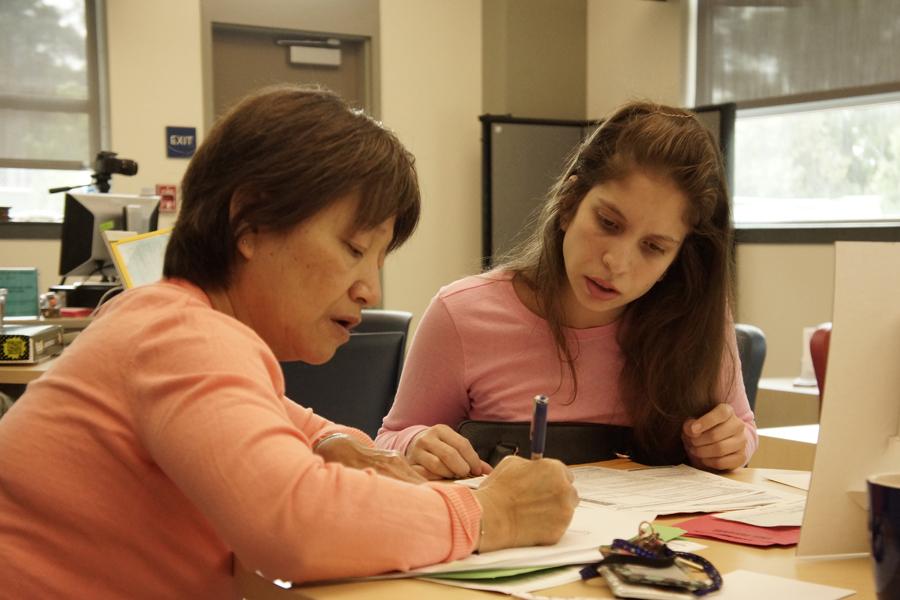International representation
Students immigrate in search of college degrees but lack proper housing accommodations
Oct 24, 2014
Students within the International Students Program could be accommodated with a more suitable way of living, coordinator Sui-Fen Liao said.
Liao said the new Welcome/Transfer Center is a comforting place on campus for all international students, but localized housing for them would be great since many international students do not live near the college.
Congolese, Nigerian, Vietnamese, Colombian, Filipino, Brazilian and Korean lineages represent half of the students associated with the program here at Contra Costa College. The other half is Chinese and currently no European students are on the program roster.
Catherine Fites, director of admissions and records, said the program has 140 international students enrolled in courses at CCC.
She said about three years ago CCC had a plan to start building “dorm like facilities” around campus, however the city of San Pablo disagreed with the idea and the funding for the project fell through.
President Denise Noldon said CCC lost its funding from the Rural Development Advance.
Dr. Noldon said most four-year institutions, as opposed to two-year colleges, have some private funds and that is how those campuses are able to host living quarters on college grounds.
When asked if CCC will continue to pursue any type of affordable living space near or on campus, she said, “We’re not in that type of business right now.”
Because of the strict homeland security regulations established after Sept. 11, 2001, Liao said she works closely with Fites to make sure all student documents are filled out correctly and filed, including host living associated with the Diablo Valley College International Homestay Program.
“There are more serious rules and guidelines we, as an administration, have to abide by because of the status of foreign students who come from other countries,” Liao said. “We have to report all of our documentation to government officials, so any process in our program will be looked upon differently.”
She said the hardest circumstances while filing documents are reinstatements for international college students because many colleges refuse to file reinstatement papers for students.
She said CCC administrators welcome the situation since students are moving in and out of the country, most of the time, because of their family situations.
Liao said most international students at CCC live in Hercules. While some students blend in well, others find the assimilation process very difficult.
Kaigang Lin, an 18-year-old communications major, said adjusting to a different culture, especially the food, were habits he had to get comfortable with when he first arrived from China.
Lin is involved with the International Students Club as its campus activity instructor.
He said English as a Second Language classes help out in essay writing skills and give him ideas for his club that meets in LA-103 from 4 to 5 p.m. once a month.
He said the CCC campus is smaller compared to his high school in China called Changnan, but that it is a good thing.
Brothers Miguel and Rico Salvador, who are from Qatar, have family that have been located in San Pablo for more than 20 years.
Miguel, 18, said the westernized style of education they received in Asia helped them transition so easily when they decided to come to the United States and attend a community college.
He said instructors teach English out there so it made all the difference for him and his brother upon arrival.
Rico said the struggles are real, but different for everyone, and wishes he can work since international students cannot receive any type of financial aid from any association.
“We don’t just get green cards automatically,” he said. “Some of us wish we could work outside of school legally to help out with the high cost of a Californian education and making about $10 (an hour) to work on campus just doesn’t cut it.”


